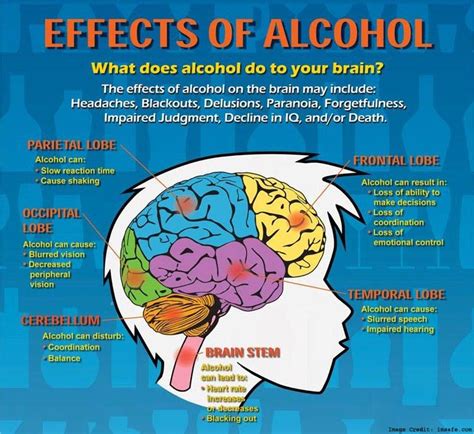Whiskey's Effect on Your Vision: A Comprehensive Look
Whiskey, a beloved spirit enjoyed by millions, is often associated with relaxation and social gatherings. However, the effects of excessive whiskey consumption extend far beyond a pleasant buzz, impacting various bodily systems, including vision. While a single glass of whiskey is unlikely to cause significant visual problems, chronic and heavy drinking can lead to a range of detrimental effects on your eyes and overall vision. This article delves into the complex relationship between whiskey consumption and vision, exploring the potential risks and offering insights into maintaining eye health while enjoying alcoholic beverages responsibly.
How Does Whiskey Affect Your Vision?
The adverse effects of whiskey on vision are primarily linked to its alcohol content. Ethanol, the type of alcohol found in whiskey, can disrupt various physiological processes crucial for maintaining healthy eyesight. These disruptions can manifest in several ways:
-
Dehydration: Alcohol is a diuretic, meaning it increases urine production. This leads to dehydration, which can impact tear production. Dry eyes can cause discomfort, blurry vision, and increased susceptibility to infections.
-
Nutrient Deficiencies: Chronic alcohol abuse can interfere with the body's ability to absorb essential vitamins and nutrients vital for eye health, such as Vitamins A, B, and C. These deficiencies can contribute to various eye problems, including night blindness and impaired vision.
-
High Blood Pressure: Excessive alcohol consumption is a significant risk factor for hypertension (high blood pressure). Sustained high blood pressure can damage blood vessels in the retina, leading to conditions like hypertensive retinopathy, potentially causing blurred vision, hemorrhages, and even blindness.
-
Liver Damage: The liver plays a critical role in metabolizing alcohol and processing nutrients essential for eye health. Chronic alcohol abuse can lead to cirrhosis and other liver diseases, disrupting this process and impacting vision indirectly.
-
Increased Risk of Certain Eye Diseases: Some studies suggest a correlation between heavy alcohol consumption and an increased risk of developing age-related macular degeneration (AMD) and cataracts. These conditions are major causes of vision loss in older adults.
What Are the Symptoms of Vision Problems Related to Alcohol Consumption?
The symptoms of vision problems associated with excessive whiskey consumption can vary depending on the underlying cause and severity. Some common signs to watch out for include:
-
Blurry vision: This is a general symptom that can be caused by various factors related to alcohol consumption.
-
Double vision (diplopia): This can result from the impact of alcohol on the nerves controlling eye movement.
-
Dry eyes: Dehydration from alcohol consumption can directly affect tear production, causing dryness and discomfort.
-
Night blindness: This can be a consequence of vitamin A deficiency associated with chronic alcohol abuse.
-
Changes in color perception: Alcohol's impact on the nervous system can sometimes affect the ability to perceive colors accurately.
-
Floaters and flashes: While not always directly linked to alcohol, excessive drinking can exacerbate underlying conditions that cause these visual disturbances.
If you experience any of these symptoms, especially in conjunction with significant alcohol consumption, it's crucial to seek immediate medical attention.
Can Moderate Whiskey Consumption Affect Vision?
Moderate alcohol consumption is often defined as up to one drink per day for women and up to two drinks per day for men. While the occasional glass of whiskey is unlikely to cause significant vision problems, it's important to remember that even moderate drinking can contribute to dehydration and potentially interact negatively with certain medications. Always prioritize hydration and consult with your doctor or ophthalmologist if you have concerns about the potential impact of your alcohol consumption on your eye health.
How Can I Protect My Vision While Drinking Whiskey?
Maintaining good eye health while enjoying whiskey responsibly involves several strategies:
-
Moderate your intake: Limit your alcohol consumption to recommended guidelines.
-
Stay hydrated: Drink plenty of water throughout the day, especially after consuming alcohol.
-
Maintain a healthy diet: Ensure you're getting enough essential vitamins and nutrients for optimal eye health.
-
Regular eye exams: Schedule routine eye examinations with an ophthalmologist to monitor your eye health and detect any potential problems early.
-
Quit smoking: Smoking significantly increases the risk of several eye diseases, and combining it with alcohol consumption further elevates the risk.
What are the long-term effects of excessive whiskey consumption on vision?
Long-term excessive whiskey consumption can lead to irreversible damage to the eyes and vision. Conditions like hypertensive retinopathy, glaucoma, and AMD can become significantly more severe due to chronic alcohol abuse. This can ultimately result in significant vision loss or even blindness. Early detection and intervention are crucial in mitigating these long-term risks.
This information is for general knowledge and does not constitute medical advice. Always consult with a healthcare professional for any concerns about your health and vision. Responsible alcohol consumption is key to mitigating potential health risks.

